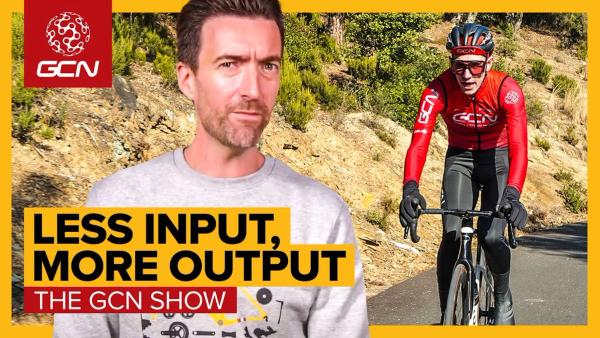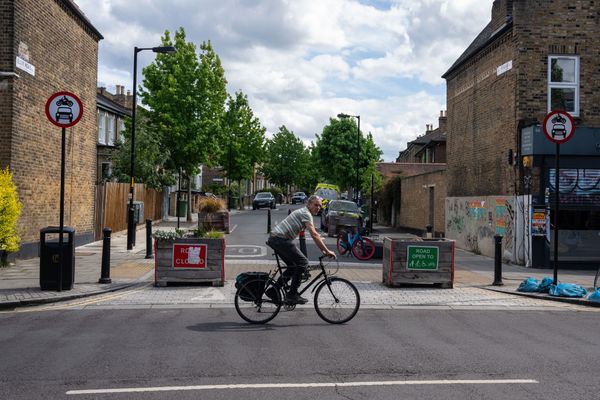Sometimes we all need a reminder that cycling is for everyone
The latest offensive poster from the E3 race caused outrage on social media, but is the sport doing enough to promote inclusivity?
Daniel Benson
Editor in Chief
© Olivia Coukham / ALL IN Racing
ALL IN Racing are riding to promote inclusivity
In late January, the E3 Saxo Classic threw themselves into hot water after publishing a cartoon that singled out and essentially mocked the LGBTQ+ community.
The Belgian race has a history of causing controversy, with previous race posters rightly deemed misogynistic, sexist and otherwise offensive. This latest publicity stunt was no different, with the cartoon depicting LGBTQ+ fans celebrating Wout van Aert after his saddle broke off during a cyclo-coss race. The offensive material was removed, and an apology was duly issued by those at E3.
The race and most of social media have quietly moved on over the last week or so but there remains an undeniable sense that while calling out such crass behaviour is a legitimate response, cycling still has work to do when it comes to diversity and acceptance. Even if these instances are few and far between in the public sphere, they depict a culture that is still in need of education and reform.
That’s not to say that there haven’t been some important and positive strides made in the last few years in and around cycling.
LDN Riders is a cycling group that allies and supports the LGBTQ+ community, Rapha and Zwift are among the mainstream brands that have promoted LGBTQ+ inclusivity through investment and publicity, and Ian Boswell raised awareness through his clothing choices when he won Unbound Gravel in 2021. Lea Davison is another well-known elite athlete who has had incredible support from her sponsors as an LGBTQ+ activist and rider.
But such examples of proactive inclusivity are disappointingly rare for a sport that spreads itself across the globe and has the potential to inspire millions. In contrast, Outsport.com recently ran an article that listed 101 LGBTQ-inclusion efforts made by the NFL. Cycling probably couldn’t fill a fifth of that quota.
“I like to try and strike as positive a tone as possible, rather than looking back at how things are bad, and instead look at how things can improve if they’re led by brands, companies and people,” says Josh Jones, founder of the ALL IN racing initiative.
Collective responsibility
Last September, having picked up a handful of UCI points at a ‘cross race, Jones stated on Instagram that he was the only openly gay male rider to hold a world ranking.
For Jones, encouraging inclusivity is about more than just calling out social media posts that offend. Instead, there is a collective responsibility that involves the sport, from organisers and federations to brands and casual fans. Everyone can play a part in making cycling more welcoming.
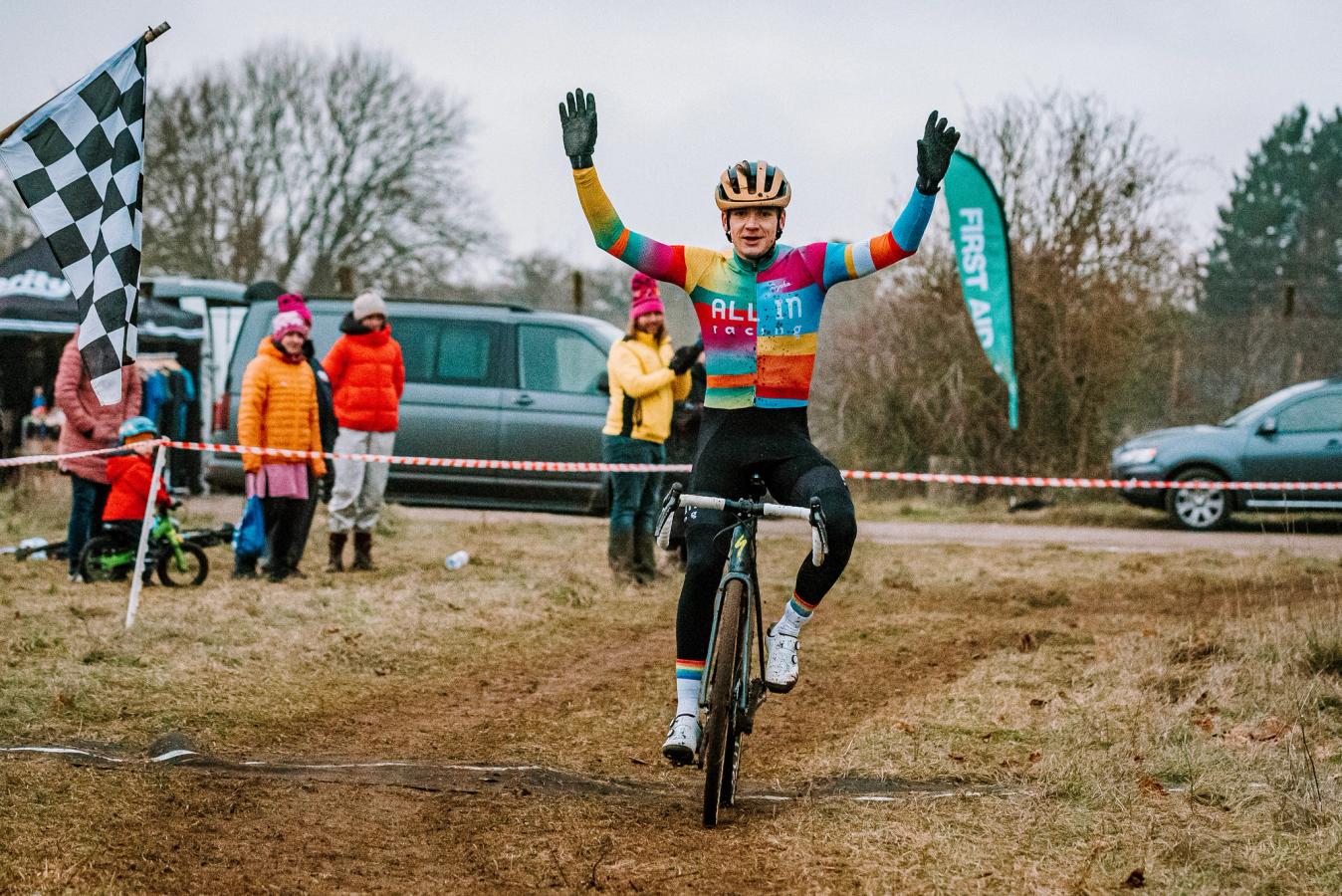
© Pitchside Photo / ALL IN Racing
There's a long way to go until we reach the true finish line of inclusivity
The tricky part is that several federations and governing bodies are so tied up with certain aspects of inclusivity that they’re too hamstrung by their red tape to really be proactive. Perhaps that’s why the UCI nor the Belgian Federation publicly commented on the E3 poster.
However, to provide a greater level of support for all athletes, Jones highlights the vital role that brands can play — even if there is a difficult dynamic to overcome.
“There’s a lot to unpack with all of this. A lot of the opportunities lie with the communities in cycling and the fans themselves because I can’t see that the governing bodies are properly convinced by the notion of proper and authentic inclusion and the positive impact that it can have,” Jones says.
Commercial interests
There’s a commercial aspect for brands to consider too. While every customer has a name and a story, they ultimately do boil down to being a number on a spreadsheet, so the wider a company’s customer base, the more bikes, jerseys and gels they’ll sell to market.
Tokenism can be sniffed out a mile away but when inclusivity is done properly brands can make a massive impact.
“Brands and organisations that rely more on a customer base, that’s where there’s more ground to do things and do it faster. The sport is in a chicken-and-egg situation because some brands that might want to do something feel that the male cycling community lacks role models that they can pin things on," Jones says.
"At the same time, the fact that the industry isn’t doing much makes it tough for someone at the top to come out and take on that position. For me, the overall big improvement can come from the brands and services, where people can be educated and informed on how much value there is in inclusion.
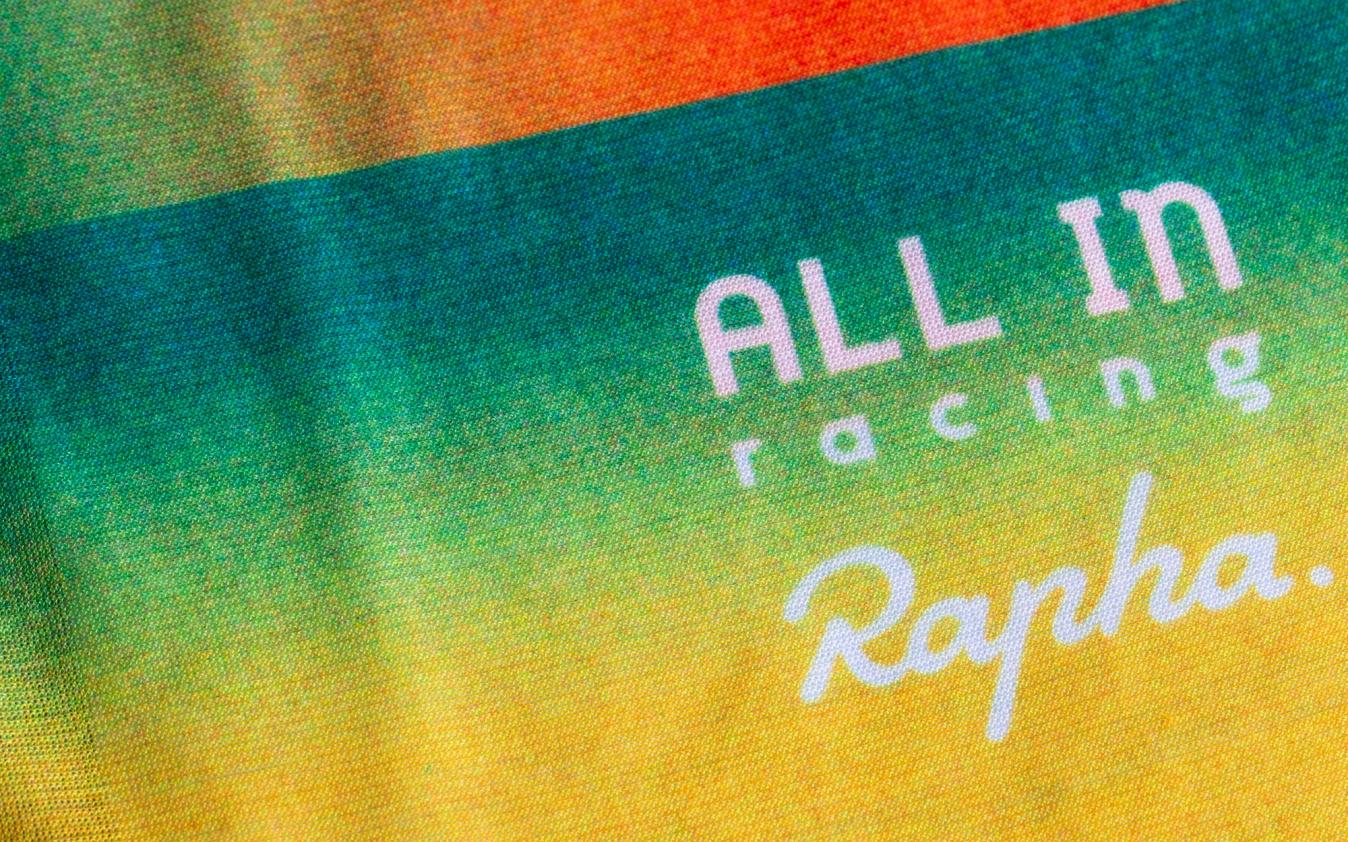
© Josh Jones / ALL IN Racing
Rapha has teamed up with ALL IN Racing in the past
“On a broad level, the sport can do more to bring in more people to the sport and these things have an impact on more than just the LGTBQ+ community because more than half of all consumers under 34 would choose a company that they know was supportive of inclusion and buy products from them over a competitor.”
There are brands out there doing their part. Rapha teamed up with Jones to manufacture rainbow socks for a UCI cyclo-cross race in which Jones was responsible for the activation and the project went down a storm. Everyone participated and wore the socks, and the only problem Jones faced was that they simply ran out of product.
Zwift ran a whole month of Pride rides through June of 2023, but a significant amount of progress has also come from a pocket of cycling clubs and organisations like Jones’ and LDN Riders.
Turning passive allyship into active allyship
Several clubs in London, for example, have become specifically built around LGBTQ+ members or have made major strides to be as inclusive as possible. Those projects have fantastic influence because they can not only talk to grassroots athletes and share the major benefits that cycling can bring but they can also talk to wider communities who might not immediately relate to the star-studded world of pro sports.
“On a social level, sport has this great power to help people from a physical and mental point of view and it’s well documented that people from the LGTBQ+ community suffer more with issues such as mental health, physical abuse, self-harm and suicide and, at the same time, on average at least, we’re less active than the rest of the population. Sport can give you an additional support community and network that you might not get in other parts of your life,” says Jones.
"It’s empathy and understanding that some people lack because they’re in a sport that just isn’t as diverse as it could be. It’s about turning that passive allyship into an active one. Get involved and show that your internal beliefs are acted on because that’s how we all make the great sport even better."
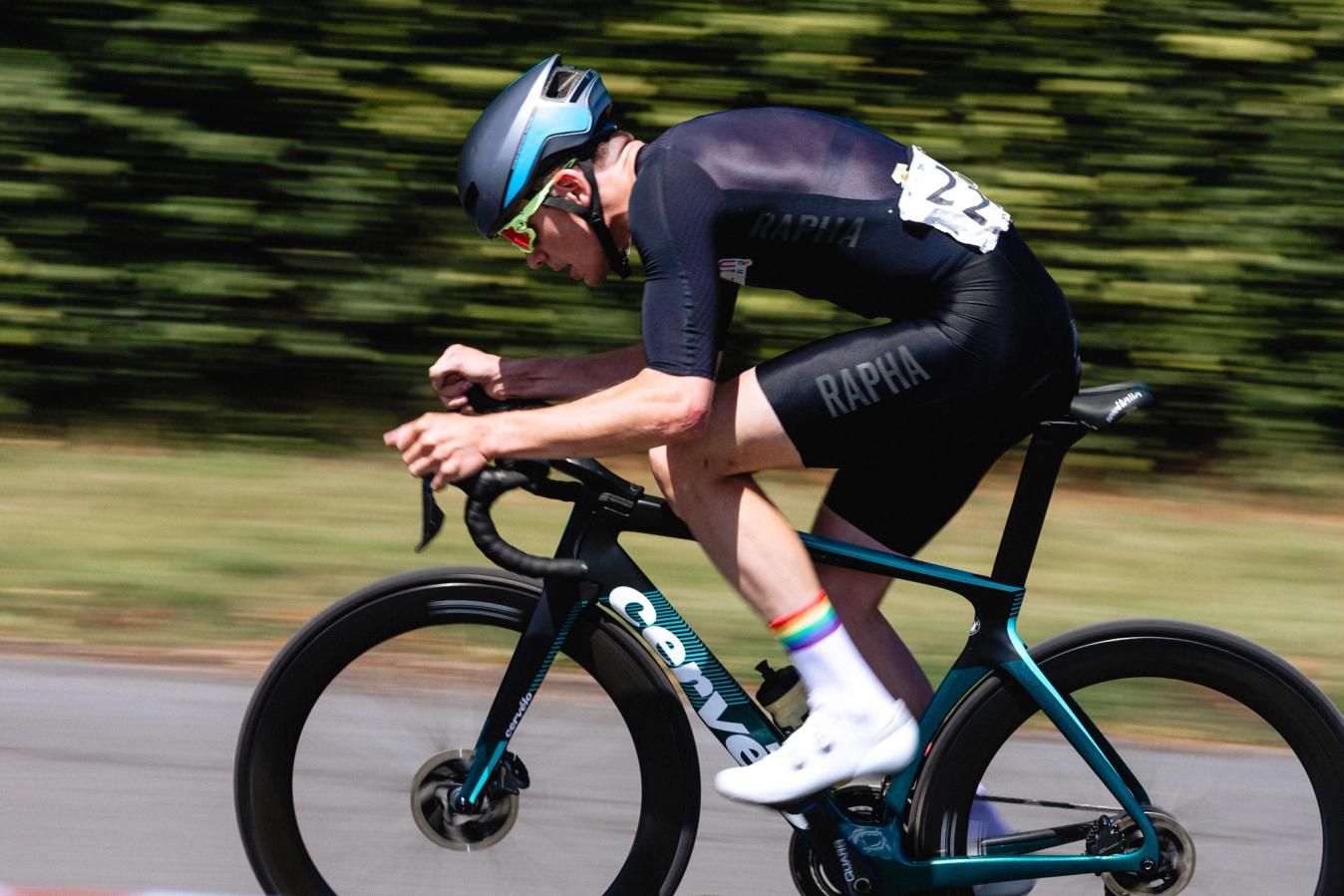
© Honor Elliott / ALL IN Racing
Rapha's rainbow socks in action
Ultimately there’s also simply a moral obligation for anyone within cycling to try and be as inclusive and as welcoming as possible. It’s without question the best sport in the world and has such a positive impact on so many facets of life, so why wouldn’t anyone want to share that experience with as many people as possible?
Jones agrees, but he does add that there is a fundamental difference between passive and active support. We can all think that we’re supportive on an internal level, or in this instance call out a race poster, but there is more we can all do to encourage everyone into cycling.
“If it’s just based on a moral justification, that often sits low down on priorities and never gets done. We’re in a position where a lot of people would feel supportive of allies but it just doesn’t materialise. So when we worked with Rapha they donated 90 pairs of rainbow socks for free and we gave them out to all the elite racers in the men’s and women’s events.
"Everyone took them, and not a single person said no. That was great. It was lovely to see and it goes to show that a lot of people just lack that sense of empowerment to allow them to show some support.”
It would be erroneous to lack the self-awareness to realise that even this article is also symptomatic of the chicken-and-egg dilemma Jones mentioned. We’re talking to him as an outcome of a negative poster that received rightful criticism.
However, if the ultimate aim is to be part of a solution that welcomes everyone into cycling, then looking for the positive outcomes, even in trying circumstances, feels like a step everyone can make together.
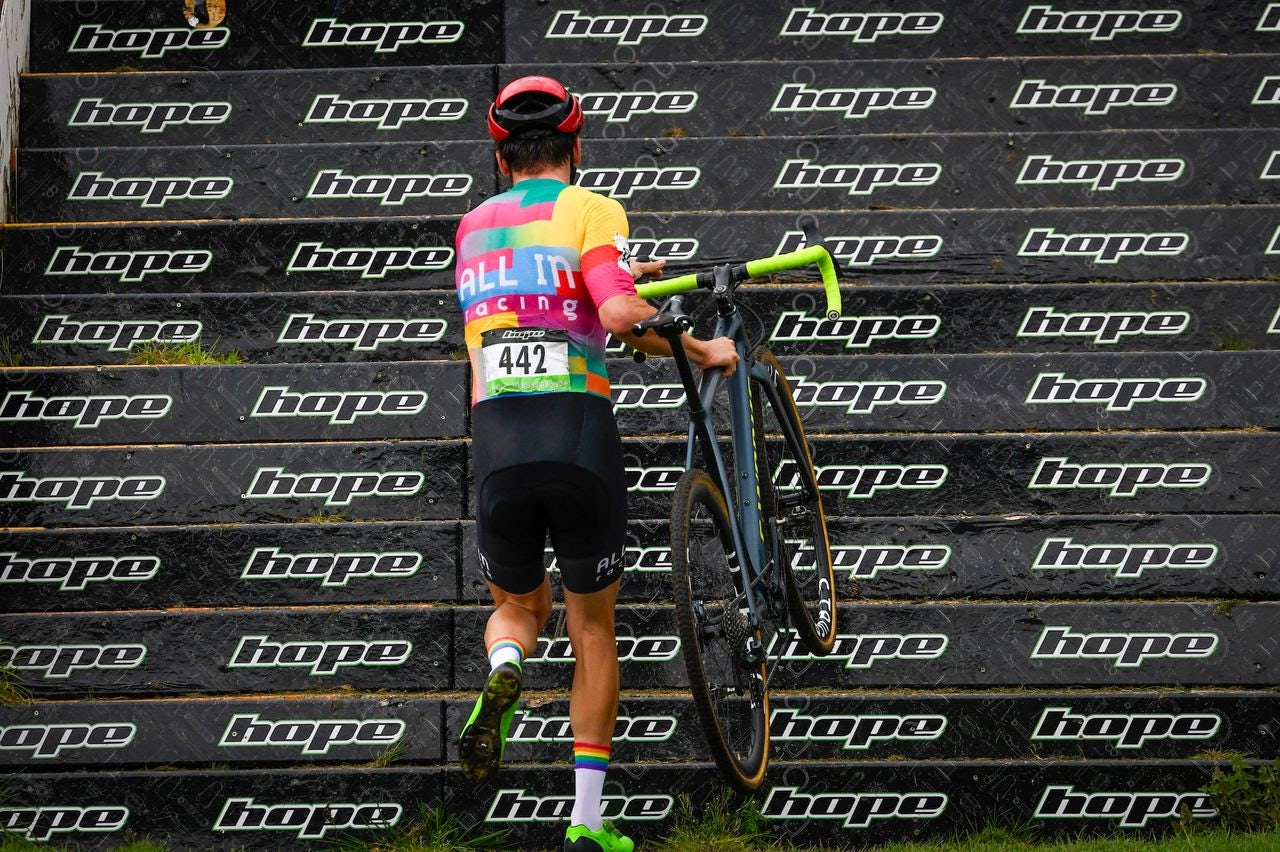







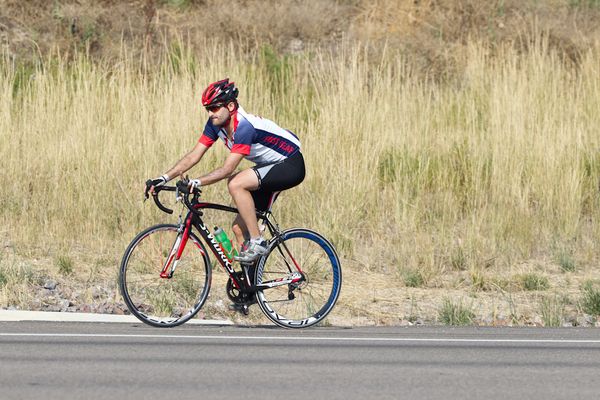
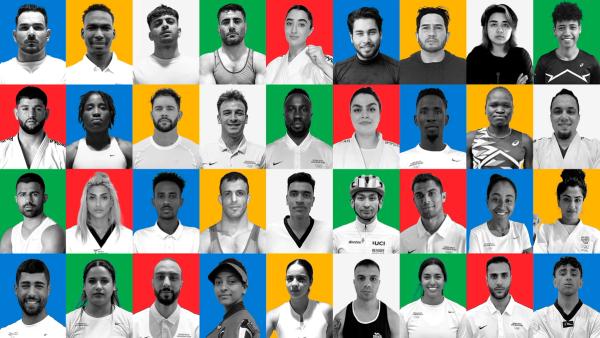
.jpg?w=600&auto=format)
